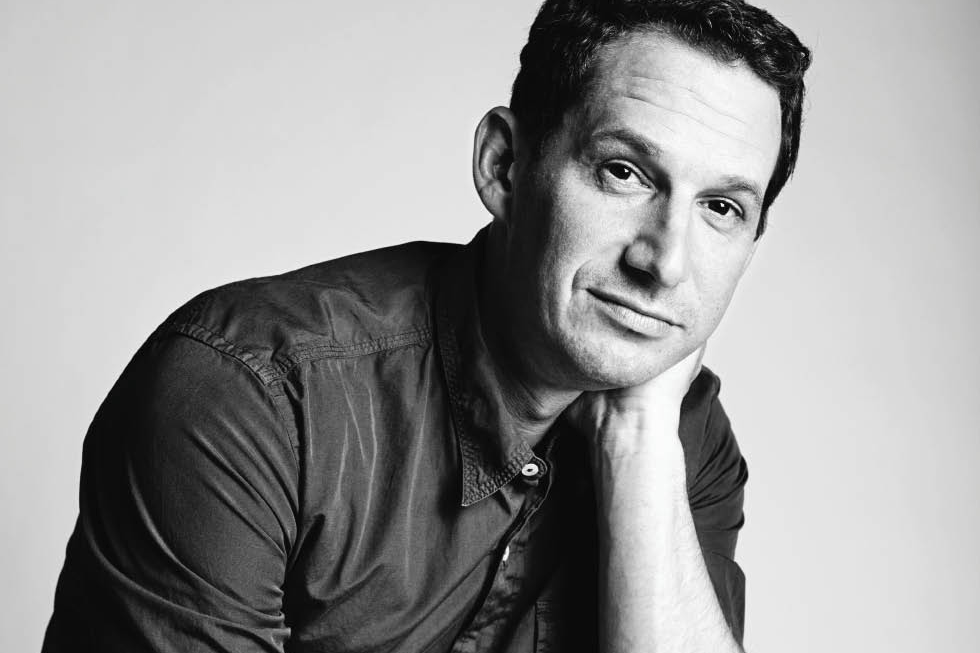Sotheara Yem has tears in his eyes. Formerly one of San Francisco’s homeless, the 27-year-old is recalling the day one of his mentors, Tipping Point Community founder Daniel Lurie, purchased a sharp navy-blue designer suit for him.
Yem, a first-generation Cambodian American, was scheduled to deliver a speech in front of 900 people at the 2011 Tipping Point benefit gala, and Lurie, who had helped the amateur filmmaker secure housing and employment, knew that a blazer from the clearance rack at H&M wouldn’t cut it. “Daniel kept telling me that I deserved to wear a quality suit,” says Yem, who now works as an outreach coordinator for Year Up Bay Area, a job-training organization for low-income urban youths. “He helped me understand what it’s like to actually live and no longer just exist.”
Yem is just one of the thousands that Tipping Point has helped. The organization awards grants to Bay Area nonprofits focused on improving the lives of those in poverty through employment, education, housing, and wellness initiatives. The statistics are challenging: 1.3 million people in the Bay Area cannot meet their basic needs. Nonetheless, Lurie’s mission is to eradicate Bay Area poverty entirely. And judging from his tireless Rolodex rallying (on his speed dial: pro football Hall of Famer Ronnie Lott, one of Tipping Point’s founding members; IfOnly.com CEO Trevor Traina, a childhood friend; and Apple design guru Jony Ive), Lurie, 37, will not rest until each of the 1.3 million—enough people to fill every inch of AT&T Park 30 times over!—gets a fair break. So yes, one success story is a great accomplishment. But in Lurie’s estimation, when it comes to better living through greater opportunities, the more, the merrier. In 2013, Tipping Point grants to antipoverty nonprofits helped 1,750 people find new jobs, 4,089 people exit homelessness, and 1,539 students enroll in college. “My dad, who’s a rabbi, always says that making a difference in just one life is great,” says Lurie, who named the organization after Malcolm Gladwell’s best-selling book about the cumulative power of small changes. “I think it’s only good enough to be a tipping point.”
For Lurie, a Bay Area native, public service has been a way of life since he was a kid. He clocked as many hours volunteering at homeless shelters as he did playing soccer or baseball. His parents are longtime philanthropists: His father, Brian Lurie, is chairman of the board at the New Israel Fund; stepmother Caroline Fromm Lurie supports continuing education through her family’s foundation, the Fromm Institute; and his mother, Mimi Haas, and late stepfather, former Levi Strauss CEO Peter Haas, emphatically supported the humanitarian endeavors of Stanford’s Haas Center for Public Service. Lurie and his wife, Becca Prowda—whose personal foray into public service began at age 15, as an AIDS hospice volunteer—plan to impart the same ethos to their 3-year-old daughter, Taya, and 10-month-old son, Sawyer. “Having children has renewed Daniel’s resolve to make sure people have access to the basic things they need to care for their families,” says Prowda, who met Lurie in 2001, when they were both working at New York City’s Robin Hood Foundation, which fights poverty in NYC and also provides relief funds to people affected by disasters, such as Hurricane Sandy or 9/11.
In fact, Lurie counts his fourth day of work at the Robin Hood Foundation, September 11, 2001 (the day he witnessed people falling from the sky; the day he watched the second plane hit the South Tower), as the day his career path was determined. “That experience, coupled with working at a place geared toward helping those hardest hit by the attacks, made my direction clear. I knew we needed something just like the Robin Hood Foundation back home in the Bay Area.”
Lurie regards September 20, 2005—when he was able to award $50,000 checks to Tipping Point’s inaugural grantees, Richmond-based Rubicon Programs and the Homeless Prenatal Program in SF—as one of his most rewarding days. Nearly a decade later, the organization’s portfolio has expanded to include 46 Bay Area nonprofits, including Aspire Public Schools in Oakland, which was recently awarded Tipping Point’s first $1,000,000 grant, to support its college-readiness endeavors. (Because Tipping Point deliberately doesn’t have an endowment to rely upon—“This ensures a very hungry model and plenty of pavement pounding,” says managing director Jen Pitts—grant money comes from fundraising dollars, and operating costs are supplied by a required minimum bequest of $250,000 per year from each of the 23 board members.)
Lurie, who was appointed by SF Mayor Ed Lee to chair the city’s Super Bowl 50 bid committee, expects February 7, 2016, when the NFL championship befalls Levi’s Stadium, to be another major victory. In fine print brilliantly conceived by Lurie to ensure the most philanthropic Super Bowl in history, 25 percent of money raised from sponsors will support humanitarian work in the Bay Area.
Another unorthodox blueprint: T Lab, Tipping Point’s new research and development arm, is a brain trust of creative problem solvers who divine experimental solutions to some of poverty’s biggest issues—early childhood education, affordable child care, and prisoner re-entry into society. Since R&D is virtually unheard of in the social sector, T Lab is yet more evidence of Lurie’s pioneering approach to philanthropy. “There is no part of Daniel that thinks, Wow, we’ve already raised $80 million and served 365,000 low-income families. My work is done,” says board member Alec Perkins of Perkins Investment Management. “He knows we’re just scratching the surface.”
This article was originally published in 7x7's December 2014 issue.





















